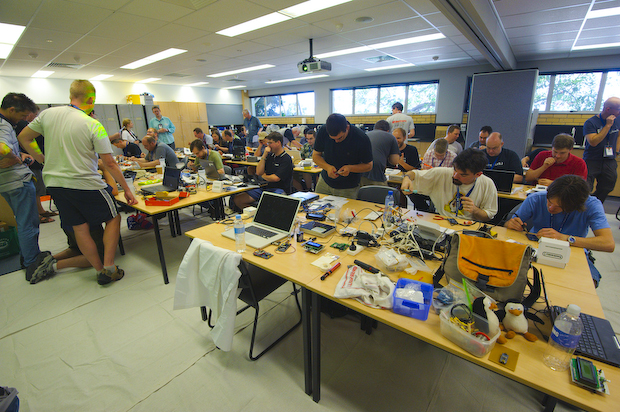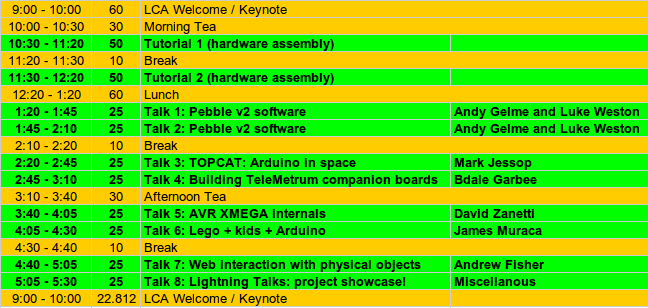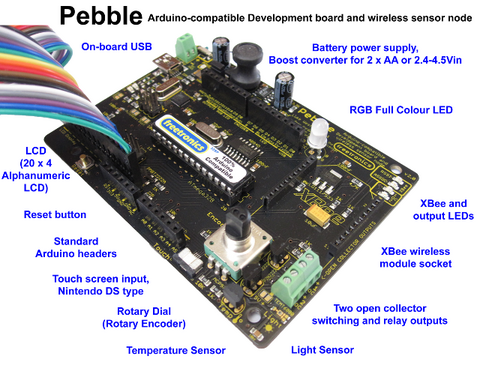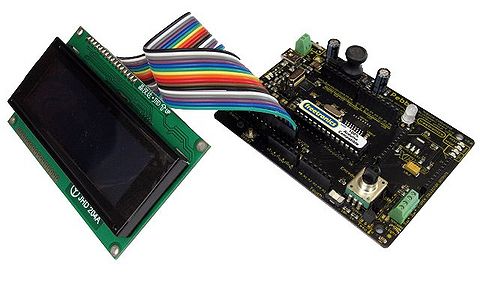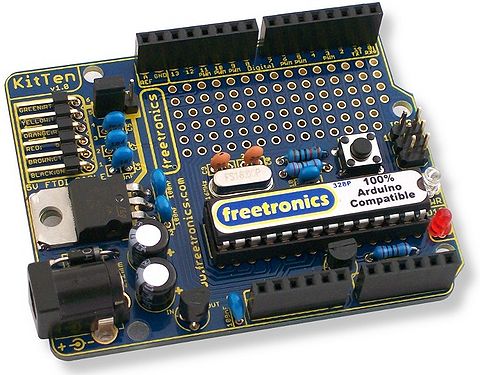Arduino Miniconf 2012: Ballarat, Australia
UPDATE: The hardware assembly session is now full as a goog, with 30 registrations for a nominal 24 spots. We can handle 30, but that's about our actual limit. If you'd still like to come along and watch / chat that's cool, and of course the afternoon talks are open to everyone.
What
The Arduino Miniconf is a 1-day event that runs in conjunction with the linux.conf.au conference. It gives participants an opportunity to learn basic soldering by assembling their own Arduino-compatible board, and then the afternoon is filled with interesting talks about various projects and techniques related to Arduino and open hardware in general. To give you some idea what to expect, this is the hardware assembly session at the 2011 Arduino Miniconf:
(Photo by Andrew McMillan, CC2.0)
After the assembly session is over the room is cleaned up a bit and the talks begin. It's a fun and educational event!
When
Monday, January 16th, 2012.
Where
Ballarat, as part of linux.conf.au. Note that to attend you must first register for the main conference, which provides the venue. The Arduino Miniconf is part of LCA as a specialist stream for conference attendees: it's not a stand-alone event.
Registration
Attendance is free (to linux.conf.au delegates) but if you wish to participate in the hardware assembly tutorial you will need to purchase a kit. Space is limited so get in fast! If you just want to come along and watch or attend the talks, you don't need to do anything. If you wish to participate in the hardware assembly tutorial, please submit the registration form.
UPDATE: The hardware assembly session is now full as a goog, with 30 registrations for a nominal 24 spots. We can handle 30, but that's about our actual limit. If you'd still like to come along and watch / chat that's cool, and of course the afternoon talks are open to everyone.
Schedule
Hardware Assembly Project: Pebble V2.0
The "Pebble" v1 board was designed by Luke Weston for the very first Arduino Miniconf in Wellington, NZ in January 2010. That first version was implemented as a "shield" to be fitted to a regular Arduino (see http://shieldlist.org/luke-weston/pebble for more information about the previous version), but Luke's latest design that we will be assembling at the 2012 Arduino Miniconf incorporates a complete functional Arduino-compatible board into a single unit. It even incorporates an ATmega8u2 microcontroller to run the USB-to-Serial connection, just like the official Arduino Uno.
The new design incorporates a number of surface-mount parts, so those will be pre-fitted prior to the Miniconf. Attendees will only need to fit standard "through-hole" parts, so the soldering skill required is minimal. This project is therefore suitable for a beginner, even though the end result will be a very capable board. It may look scary and complicated, but don't worry, most of the parts will already be on the board.
These kits will be $70, which includes everything except the XBee module that can be added later if you desire.
Alternate Hardware Assembly Project: KitTen
The "KitTen" is a kit-based Arduino-compatible board that uses an FTDI cable to upload new sketches from your computer. These kits were a great success at the 2011 Arduino Miniconf so we're bringing them back as an alternate assembly project for those who need a cheaper alternative to the Pebble.
To get a preview of the assembly process, see http://www.freetronics.com/pages/kitten-assembly.
These kits will be $36, which includes a 5V FTDI USB-to-Serial cable for connecting it to your computer.
